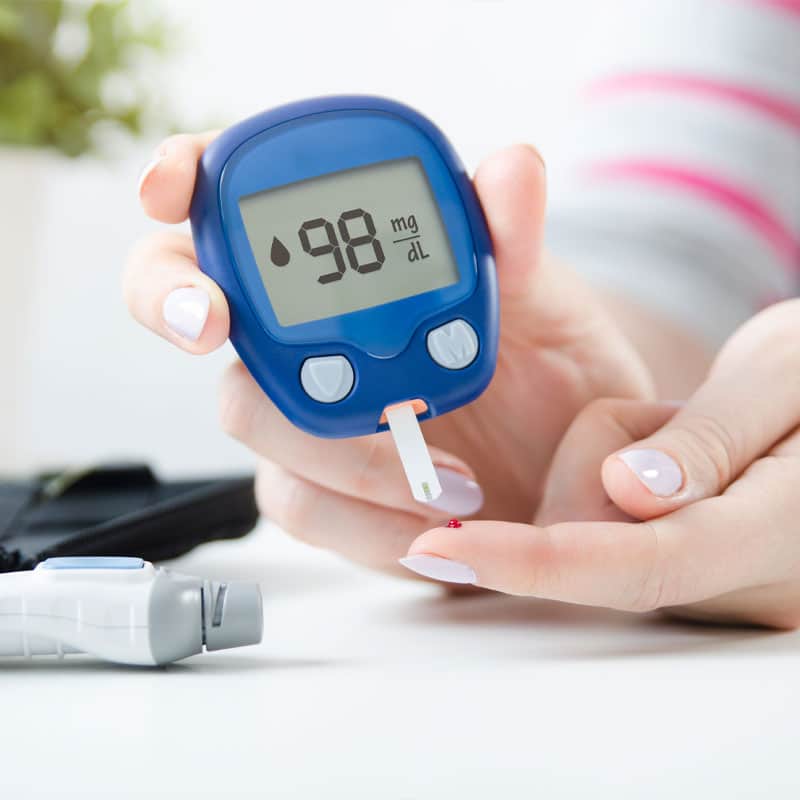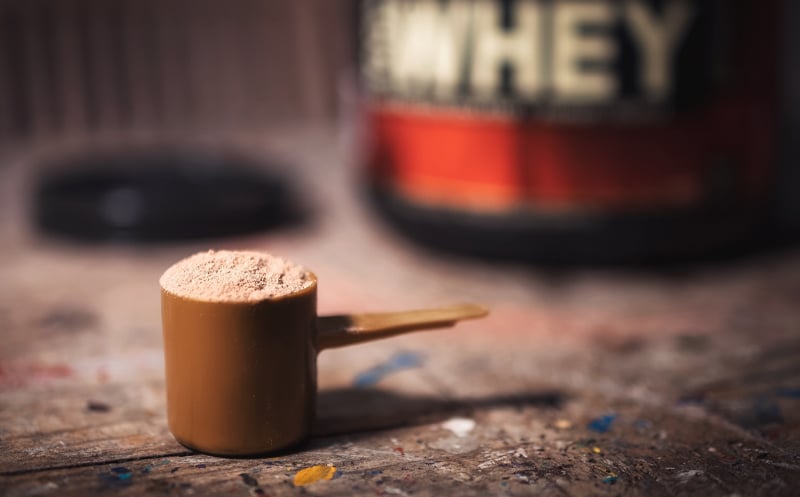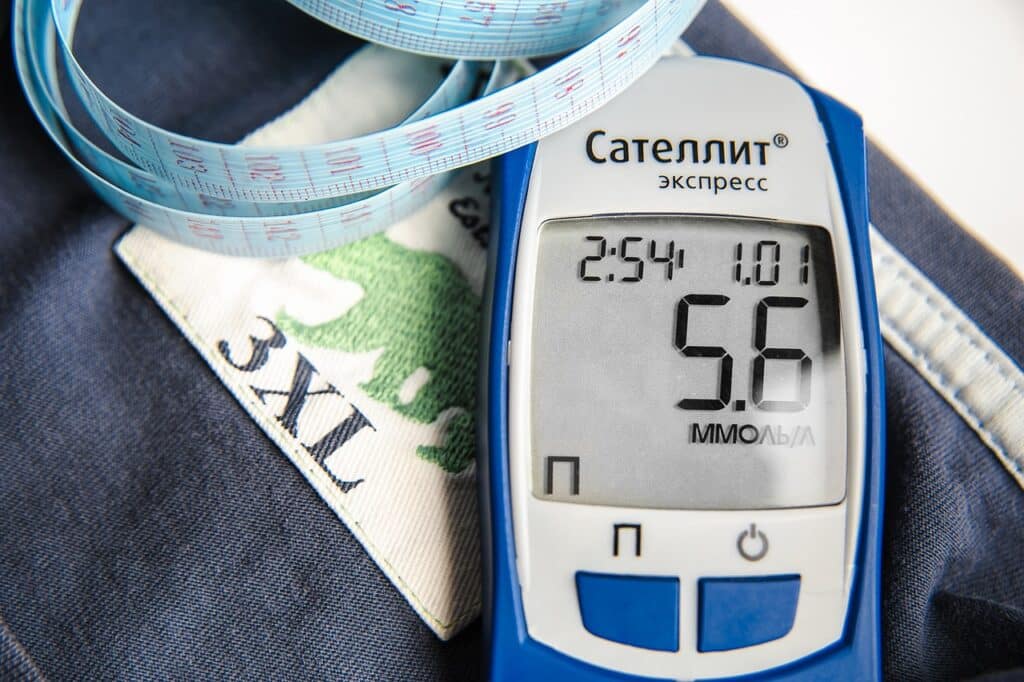
What is Diabetes?
Diabetes is a chronic medical condition that impacts every system in your body. Unmanaged blood sugar levels can cause a wide variety of complications including decreased vision, neuropathy, slow wound healing, cardiovascular disease, and kidney disease.
There are many diabetes medicines on the market to help control your blood sugar levels. In addition to this, there are many different ways you can help manage your diabetes naturally.
Common ways to naturally manage diabetes
Carbohydrate Consumption
The amount of carbohydrates you eat is directly related to your glucose levels. When your body breaks down carbohydrates, they turn into glucose and other types of sugar, which can cause your blood sugar levels to fluctuate. How many carbohydrates you should consume at each meal will depend on several factors, including your age, your physical activity levels, and your weight.
According to the CDC, you should limit your intake of carbohydrates to 200 to 245 grams per day or no more than half of your total daily calories. As you begin limiting your carbohydrate consumption, it is important to take regular blood glucose readings and make adjustments to your diet as needed.

When trying to reduce your carbohydrate consumption, it is important to remember that carbs are found in a variety of foods. Many people think the only foods that need to be removed are pasta, bread, and potatoes. However, glucose is found in dairy products, processed foods, sweets, fruits, and vegetables.
Fiber
Fiber helps you manage your blood sugar naturally. Fiber not only stabilizes your blood sugar levels, but it also lowers your risk of heart disease and helps you lose weight. High fiber foods like whole grains, beans, lentils, and chickpeas can reduce your average blood glucose levels.
There are two types of fiber – insoluble and soluble. Insoluble fiber cannot be digested by the body and does not dissolve when exposed to warm water. This type of fiber helps to remove toxins, excess hormones, and fats from the digestive tract. Insoluble fiber forms a gel when exposed to water. It slows down how quickly carbs are absorbed in the gastrointestinal tract, which helps reduce blood glucose spikes.
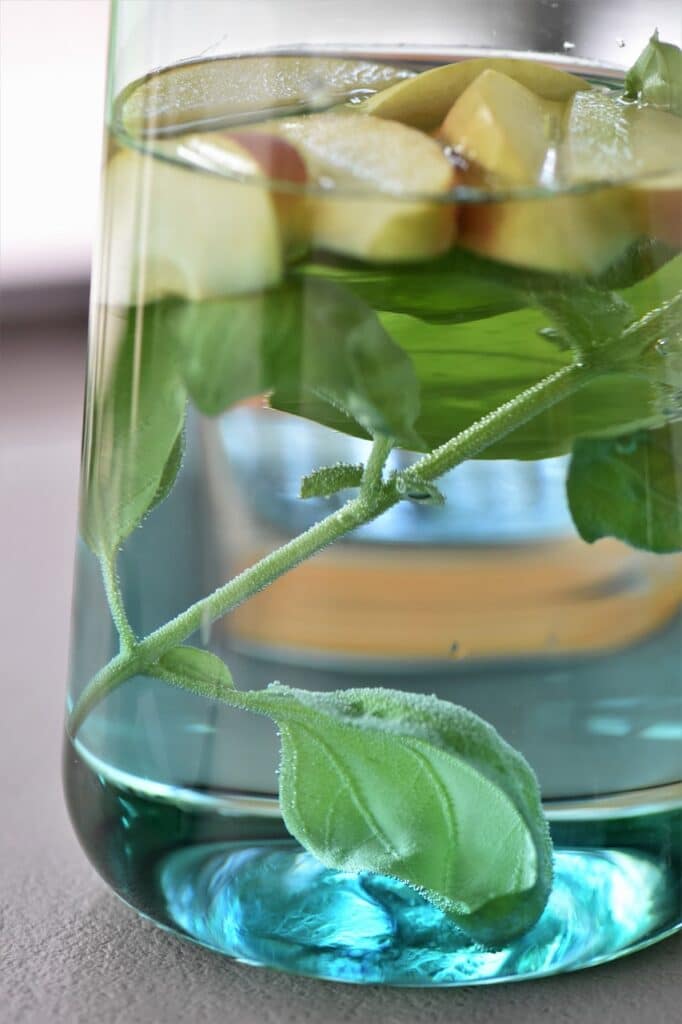
Hydration
Staying hydrated is one of the best things you can do to keep your blood glucose levels in check. Studies show the more water an individual drinks, the less likely they are to develop high glucose levels. Water helps to flush glucose from your body through urination and to dilute your blood, thus reducing blood glucose readings.
When it comes to hydration, it is essential for diabetics to drink water and other zero calorie drinks. Avoid caffeinated beverages as these drinks can dehydrate you even further. Additionally, you want to avoid sugar sweetened drinks and fruit juices as these can also increase your blood sugar levels.
Experts recommend drinking one half of an ounce of water for each pound you weigh. That means if you weigh 150 pounds, you will need to drink 75 ounces of water daily to remain hydrated. It is not only important how much water you consume but also how you drink it. Sipping on water throughout the day will help keep you properly hydrated. If you drink too fast, you will just urinate the water out and your body will not be properly hydrated. When it comes to hydration, slow and steady will win the race.

Physical Activity
Regular exercise is essential to maintaining healthy glucose levels. Exercise works in several ways. First, physical activity has been associated with increased insulin sensitivity. Increased insulin sensitivity allows the body to better use insulin to lower blood glucose levels.
Getting more physical activity also aids in weight loss. Daily exercise increases your metabolism, helps detoxify your body so it can function better, and pulls stored glucose from your body to use for energy. For the best results, aim to get at least 30 minutes of aerobic exercise (biking, swimming, jogging, walking, etc.) five days a week. Try Wellness Exercise in addition to working out in the gym.
Muscles use glucose for fuel. By increasing your muscles through strength training, you can greatly reduce your A1C readings. Do two to three sessions of strength training exercises each week to help manage diabetes naturally.
Quality Sleep
Sleep is a vital part of maintaining good health. Sleep deprivation has been shown to increase cortisol levels, which increases glucose levels. It also reduces insulin sensitivity and the body’s ability to use glucose effectively. Sleep deprivation has been associated with increased appetite and weight gain.
Strive to get 7 to 8 hours of sleep each night. You can improve your sleep quality and quantity by following a sleep schedule, avoiding caffeine after lunch, getting daily exercise, and reducing screen time before bedtime. To help achieve better sleep you can create a bedtime routine. Use a white noise machine, install room darkening blinds or curtains, and lower the temperature in your bedroom by a couple of degrees. Another option is to try a few moments for mindfulness before bedtime. It will not only help you sleep better, but can help reduce stress.
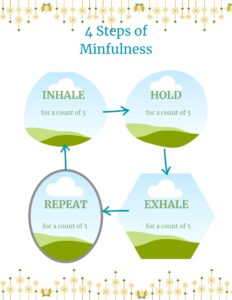
Stress Reduction
Did you know that high stress levels can cause high blood sugar levels? When you are stressed, your body will secrete cortisol, which reduces the body’s ability to function properly. Cortisol is a hormone created in the adrenal gland. This hormone’s function is to provide the body with increased energy by stopping nonessential functions. It impairs insulin secretion while increasing glucose output.
Additionally, when you are experiencing chronic stress, your body will release glucagon. Glucagon is created in the pancreas and is used to help regulate your glucose levels. Unfortunately, this hormone is designed to raise your blood sugar levels when they drop too low.
There are many ways to reduce your stress levels naturally. First, reduce your to do list by delegating tasks both at home and at work. Next, learn when and how to say no without feeling guilty. Finally, practice stress relief techniques like journaling, yoga, and meditation to reduce your stress levels and blood glucose levels.
How We Can Help?
If you have been diagnosed with diabetes and want help to manage your diabetes naturally, eat a healthy diet, get ample exercise, and get a good night’s sleep each night. The goal of our diabetes program is to reduce your blood glucose levels naturally while reducing your dependence on prescription medications. We get to the root of the problem to help you become healthy.
















